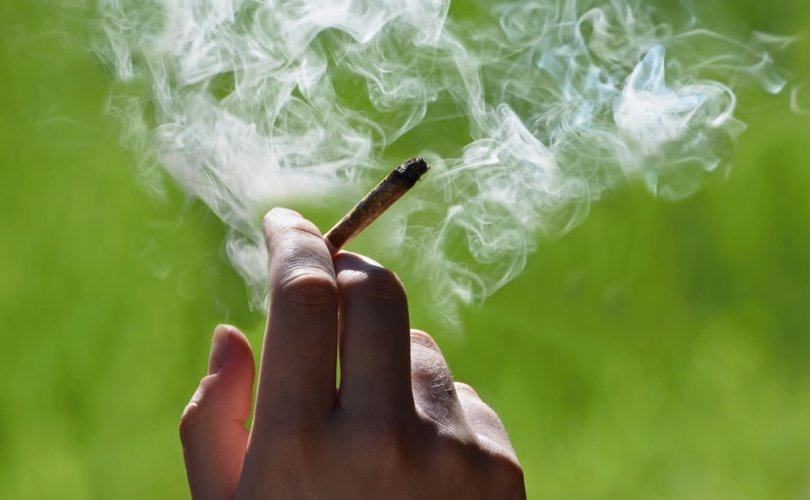(LifeSiteNews) – Oklahoma residents voted overwhelmingly Tuesday against a ballot initiative to legalize marijuana in the Sooner State, in the latest defeat for a movement uniting leftists and libertarians.
Oklahoma State Question 820, the Marijuana Legalization Initiative, provided for “legalizing recreational marijuana for adults 21 years old and older, allowing adults to possess up to one ounce (28.35 grams) of marijuana and grow up to six mature marijuana plants and up to six seedlings, and enacting a tax on marijuana sales.”
Oklahoma already permits marijuana use for ostensibly medicinal purposes; the initiative would have made it the 22nd state (plus the District of Columbia) to allow recreational use. But voters ultimately rejected it 61.8% to 38.2%, despite supporters outspending opponents by twenty-to-one, News-Press Now reports.
“Oklahoma is a law and order state,” responded Republican Gov. Kevin Stitt, who opposed the initiative. “I remain committed to protecting Oklahomans and my administration will continue to hold bad actors accountable and crack down on illegal marijuana operations in our state.”
“We’re pleased the voters have spoken,” added Republican strategist Pat McFerron, who led the campaign against 820. “We think this sends a clear signal that voters are not happy with the recreational nature of our medicinal system. We also think it shows voters recognize the criminal aspects, as well as the need for addressing mental health needs of the state.”
Marijuana legalization has long been a project uniting people along unconventional political lines. Its proponents argue that use of the drug is a “victimless crime” and matter of personal liberty, while legalization has tempted many politicians with the prospect of the tax revenue that legal pot sales could bring.
But evidence indicates that permitting marijuana use carries significant risks, both to the user and to those around him.
Dozens of studies have found a link between marijuana use and developing psychosis and schizophrenia, particularly when used in one’s teens or early twenties, when the brain is still developing. States that have legalized marijuana have also seen increased deaths from traffic accidents.
Shortly after Colorado became the first state to legalize recreational marijuana in 2012, Sgt. Jim Gerhardt of Denver’s North Metro Drug Task Force said he has “seen children infant age that have been getting into this stuff and hospitalized, and this has been under medical marijuana. I can’t imagine how bad it’s going to get with full blown legalization […] All the problems we’ve already had have exploded, and I think they are going to get worse.”
The Fraternal Order of Police (FOP), which represents more than 364,000 law enforcement officers in the United States, opposes marijuana legalization, warning that “States which have elected to disregard the Federal prohibition on this drug have not been able to mitigate the black market in their own jurisdictions or prevent trafficking into and from other States.”
“Marijuana, like any illegal drug, is a risk to public safety,” says FOP national president Patrick Yoes. “It is intrinsically linked to the violence of drug trafficking and is not ‘harmless.’ Studies have shown that those who use marijuana at a young age are more likely to become addicted to opioids, further contributing to the national opioid epidemic. Furthermore, marijuana is itself an addictive substance […] Enabling more of our fellow citizens to use drugs like marijuana is too great of a risk to public safety.”

